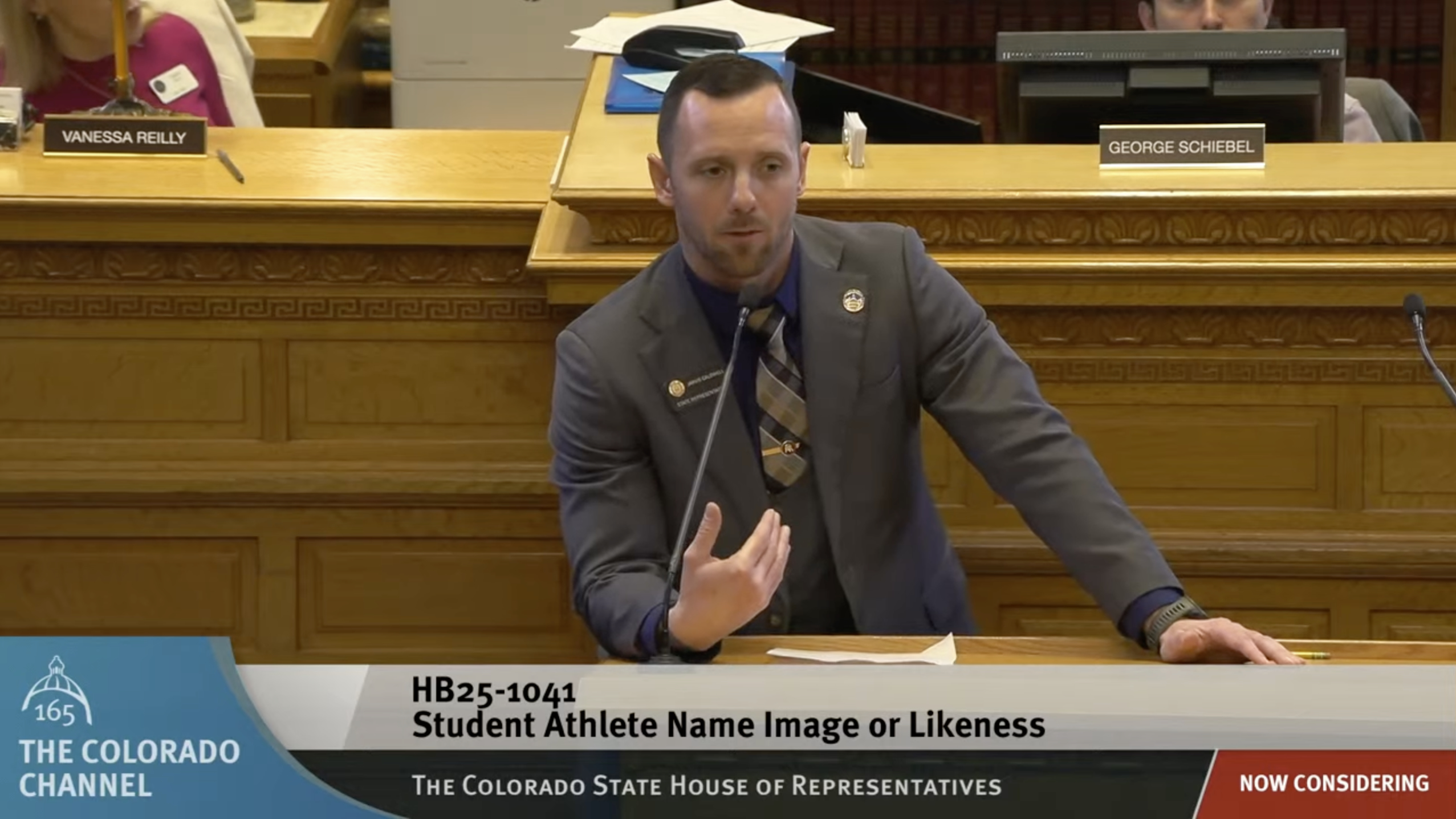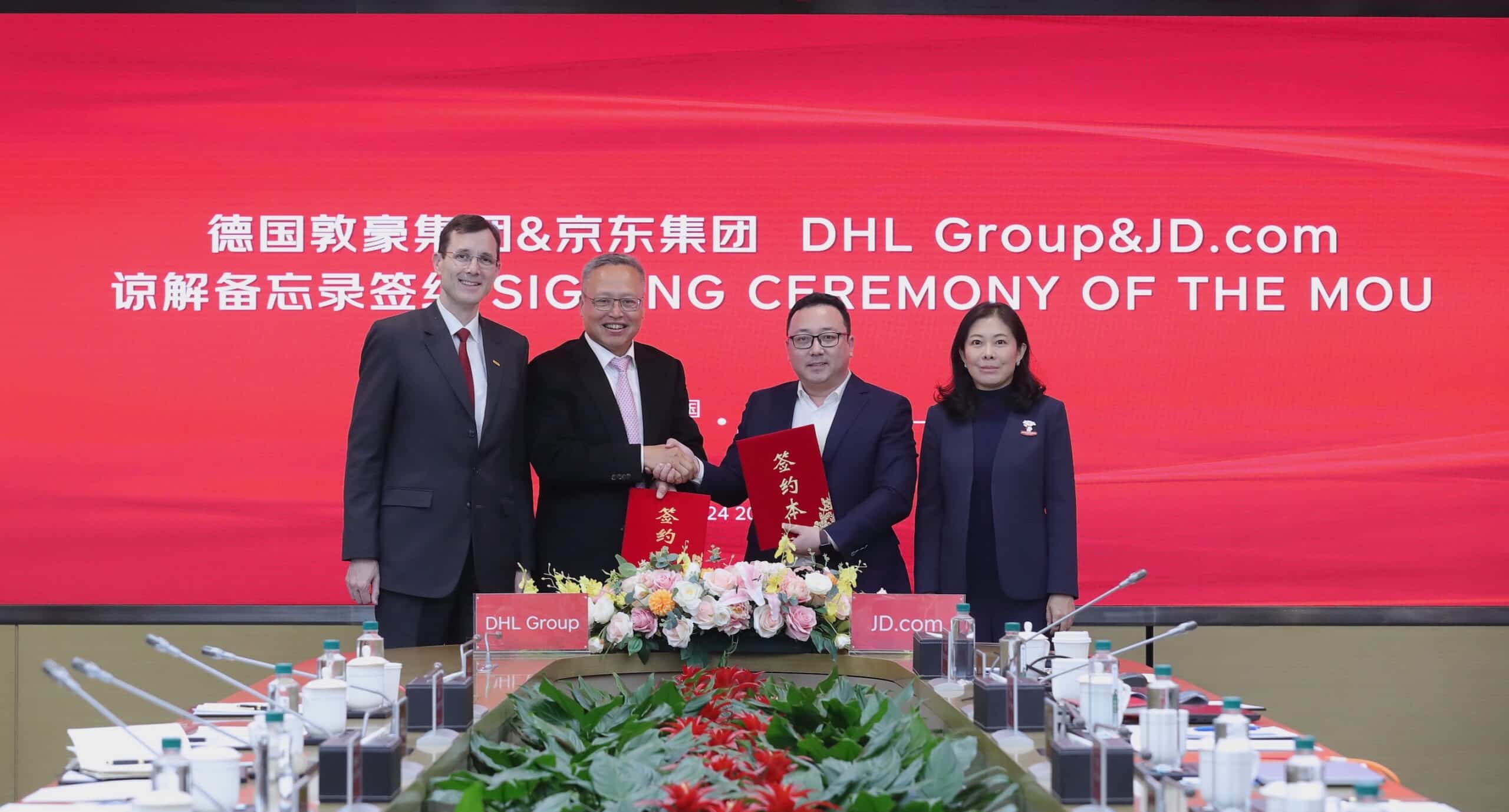Jarvis Caldwell has been a member of the Judge Advocate General’s Corps, he’s been a realtor during a pandemic and he’s been both a staffer and an elected official under the Gold Dome. But until two weeks ago, he’d never considered leading a legislative caucus.
When Colorado House Minority Leader Rose Pugliese told her Republican colleagues that she was planning to resign and Assistant Minority Leader Ty Winter indicated that running two businesses and a caucus may be too much, Caldwell suddenly began fielding calls. Though he’d just finished his first year as an elected official, the 36-year-old known for his calm and his politeness in dealing with colleagues across the aisle — and called out by Pugliese as one of the rising caucus leaders on business issues — emerged as the consensus choice to be her successor, winning the majority of votes in a three-way race.
Now Caldwell steps from the background of his caucus into a high-profile and trying job, trying to ensure Republicans have a voice despite being at a 43-22 disadvantage in House seats and having to choose carefully where to seek compromise and where to just oppose. And he must do so in a 2026 session where a wide range of important business issues will be on the table, from environmental regulations to potential tax-break rollbacks to an unprecedented rulemaking on artificial intelligence.
How will Caldwell act as minority leader?
No simple statement defines how Caldwell will lead his caucus in taking on key issues, but the man who won an open seat in 2024 after defeating a more conservative primary opponent said he’ll look to lock arms with Democrats when the effort can produce results. Translation: He’ll seek opportunities to make bills the GOP opposes into acceptable pieces of legislation while proactively pushing for regulatory rollbacks, but when there isn’t hope for a reasonable compromise, he’ll do everything he can to block a bill’s passage.
“I’m going to work across the aisle when there are good things to do for Colorado,” Caldwell told The Sum & Substance. “But when we see bad bills, we’re going to fight them with everything we have.”
Born in Florida and reared in Kentucky, Caldwell grew up the son of coal miner. He spent 10 years in the U.S. Air Force, serving first as an aircraft technician and then as a paralegal in the JAG Corps. While he turned to a career in real estate after leaving the military, he also got involved in politics as a means of continuing his public service, and he came on as communications director for then-House Minority Leader Hugh McKean in 2022.
His multiple careers prepped him to be a legislator in different ways. His time in the JAG Corps fed his interest in bolstering public safety, leading to his appointment to the House Judiciary Committee. And his timely stint as a realtor — he received his license just three days before Gov. Jared Polis issued his March 2020 executive order shutting much of the state down because of coronavirus — emphasized the need to ensure the availability of affordable housing.
Thinking through business debates
But it’s the time he spent working under the pragmatic McKean and learning under the equally pragmatic Pugliese that may prove most influential to the Monument Republican as he steps into caucus leadership. That’s particularly true because he’ll face a number of thorny debates where business leaders may ask him to work alongside moderate Democrats and step in to help amend or pass key bills.
After a special session in which Democrats rolled back five tax breaks to help balance the budget, further attempts to reduce or eliminate tax incentives, including on things like software sales, are expected to come next year. Caldwell said that while his gut instinct is to protect any current law that reduces the cost of doing business, he particularly will emphasize the need to preseve those incentives that have shown the ability to boost economic activity and argue in that vein to his Democratic counterparts.
That same line of thinking will permeate his approach to proposed environmental regulations in a session where Democrats are expected to push for utilities to reach net-zero on emissions by 2040, 10 years ahead of the current schedule. While Caldwell argued that the public-health goals of such a bill are laudatory, he will look to slow rather than stop some of the changes that could be mandated, arguing that neither utilities nor customers should have to adopt technology before it’s technically or economically feasible.
To fight or to seek compromise?
“I’ve never been anti-all regulations. We want safe buildings, and we want clean air. We want a lot of things that Democrats want,” he said in an interview. “But this really comes back to the fact that Legislature is trying to achieve goals in unrealistic timeframes. We’re rushing things through so much that utilities are having to spend a lot of capital to have to make these changes, and that will be reflected in bills in ways that consumers can’t afford.”
For some issues — including expected proposals to establish AI regulations and unknown bills that may impact labor relations like last year’s unsuccessful attempt to undo the Labor Peace Act — Caldwell said he wants Republicans to have a seat at the table. And with legislators likely to debate bills both on increasing and reforming regulations this year, he said he will push for solutions that ultimately don’t stifle growth and that can help to reduce unemployment, which has been below the national level for most of the year.
Officials and policy advocates from both sides of the aisle are eager to see how this plays out, as Caldwell ranks as one of the more unexpected choices to vault into caucus leadership in a while. He is the youngest House minority leader since Mark Ferrandino led House Democrats during the 2012 session, and he is one of the few in recent memory to head a caucus without first serving on the Joint Budget Committee or in some other caucus leadership position.
Bipartisan congrats for Caldwell
The rest of the GOP leadership team — Winter, Minority Whip Carlos Barron and Minority Caucus Leader Anthony Hartsook — lauded Caldwell’s “vision and dedication” after his Sept. 20 election and cited him as someone who will “unite our caucus.” While House Republicans are not as widely split as they were in past sessions, there remains a more conservative faction that often prefers confrontation with Democrats over potential collaboration.
House Speaker Julie McCluskie and Majority Leader Monica Duran, whose relationship with Pugliese had frayed in recent months, issued a statement after the caucus election vowing to “always seek common ground where possible” with Caldwell. It could be apparent quickly how many subjects hold such compromise possibility.
In addition to walking a delicate path between hand-holding and hand-to-hand combat in order to be an effective minority leader, Caldwell also must try to find a way to win Republicans more seats — he wants to pick up at least three — in the 2026 election. He plans to do that by emphasizing what he believes is the need for Colorado to do better at reducing crime, bringing down the rising cost of living and improving education, and on those issues, he is likely to be more aggressive in going after Democrats.
The truth is that many people who will be dealing with Jarvis Caldwell a lot during the 2026 session, including leaders in the business community, haven’t gotten to know him well yet. And that means he will have a chance to establish himself in a way that few of his predecessors have had as he tries to exert the most influence that he can from his post.
“I will be a good-faith actor,” he said. “But we’re also going to fight the stuff we see as bad.”









